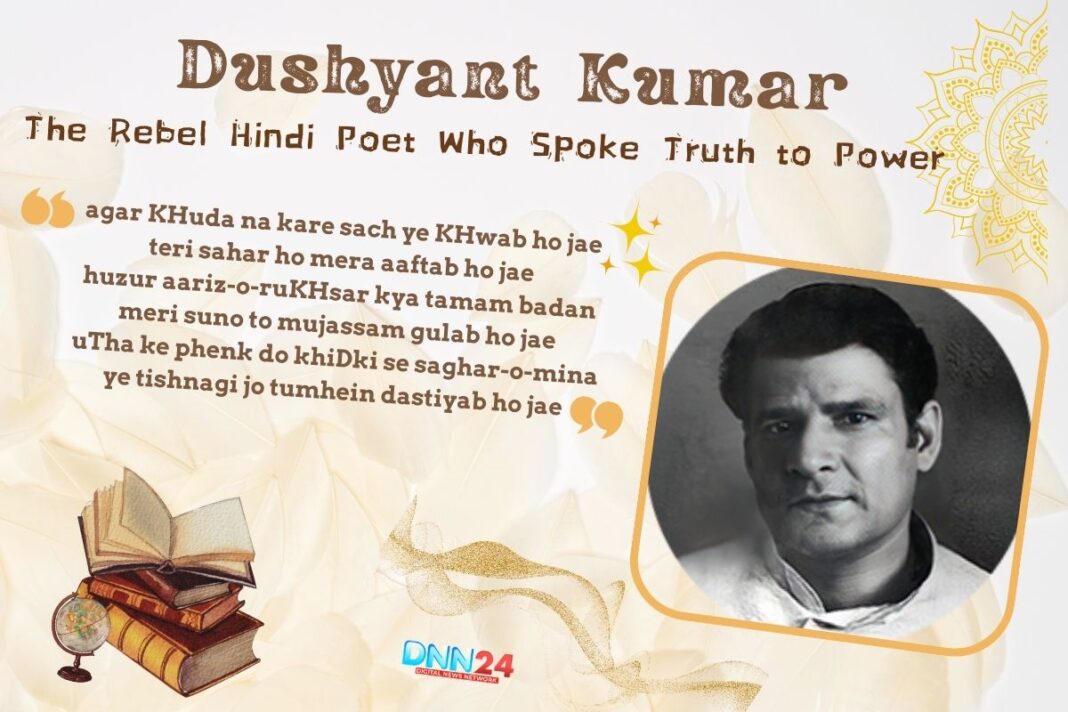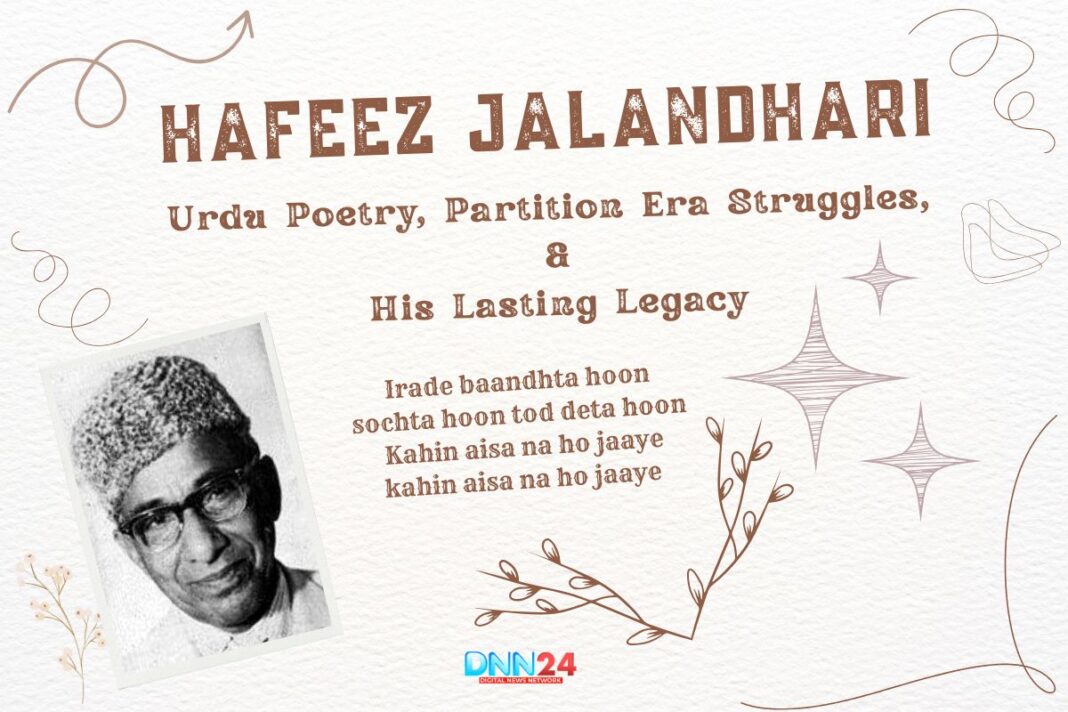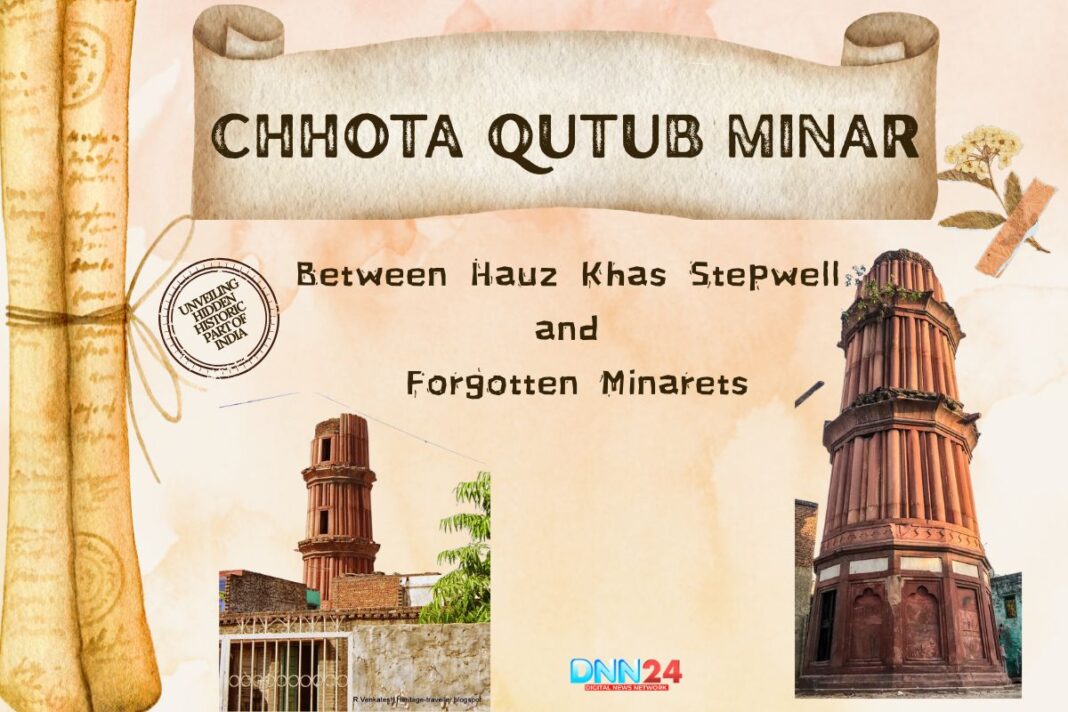Dushyant Kumar’s legacy lives not only in books, but in the dim rooms of young poets who keep his couplets beside them like a small torch during their hardest nights. His story begins in Rajpur Navada, a quiet village in Uttar Pradesh, far from the noise of fame or privilege. He was born into a modest home, surrounded by the rhythm of fields, the concerns of farmers, and the everyday struggles of ordinary families. These sounds and silences shaped him long before he wrote his first verse.
wo aadmi nahin hai mukammal bayan hai
Dushyant Kumar
mathe pe us ke choT ka gahra nishan hai
His father, Chaudhary Bhagwat Sahay Tyagi, was not a poet, and his mother, Rajkishori Devi, taught him simple values and the courage to question. Dushyant was not the star student, yet there was something in him that teachers noticed. He watched life closely, gazing through windows, scribbling thoughts on scraps of paper. Some of those early lines startled his schoolmasters with their sincerity.
ye jo shahtir hai palkon pe uTha lo yaro
Dushyant Kumar
ab koi aisa tariqa bhi nikalo yaro
High school in Nahatour and later his M.A. in Hindi at Allahabad University opened new doors, but he carried the plain truth of his origins wherever he went. In college hostels, he wrote verses that echoed the hunger, hope, and hurt of common people. Even as he wrestled with studies and finances, his poetry began to speak with a clarity that would one day shake an entire generation.
hone lagi hai jism mein jumbish to dekhiye
Dushyant Kumar
is par kaTe parinde ki koshish to dekhiye
Unheard Struggles: The Fire Behind His Words
Behind every powerful poem of Dushyant Kumar lay a world of struggle and pain that few knew. Unlike many who wrote only of personal heartbreak or distant beauty, he wrote from wide-open wounds, cut by the world. His first jobs were small: a scriptwriter at All India Radio Delhi, and later, he moved to Bhopal with hope, working at Akashvani and then the cultural and language department in Madhya Pradesh.
kaise aakash mein suraakh nahin ho sakta
Dushyant Kumar
ek patthar to tabiyat se uchhalo yaaro
But nothing was ever easy. In every city, he faced rent troubles, unsympathetic bosses, and a society that was often cruel to an honest poet. Dushyant’s health, too, was constantly failing him, leading to exhaustion attack after exhaustion attack.Perhaps the most untold part of his life was the sense of rejection he felt when his early poems were dismissed as ‘too sharp’ or ‘too angry’ for the audience of his time. Editors often asked him to tone down his emotional honesty, but stubborn Dushyant could never compromise his truth for popularity.
mere seene mein nahin to tere seene mein sahi
Dushyant Kumar
ho kahin bhi aag lekin aag jalni chahiye
He once wrote a letter where he confessed, “Sometimes I feel my words are stones in their food, but what else am I to write if this is how life tastes for us?” There are stories of him pawning off his books and walking barefoot to mail his manuscripts to publishers who often did not even reply.Still, he kept writing. Emergency came to India, and his personal struggles mirrored the country’s. The darkness of those days ignited the flame in Dushyant. His verses like “Ho gayi hai peer parvat si pighalni chahiye…” were not born from comfort but from long nights of hunger, worry for his family’s future, and a burning need to shake the country out of its sleep.
sirf hangama khada karna mera maqsad nahin
Dushyant Kumar
meri koshish hai ki ye soorat badalni chahiye
On The Streets, Among The People
Many poets remain in the world of books and ink, but Dushyant lived on the streets with the crowd, among rickshaw pullers, street vendors, and office clerks. It was common for people to see him in ordinary teashops, talking to strangers, listening, really listening, to their stories. There is a little-heard story from his days in Bhopal: once, during riots, Dushyant spent an entire night sheltering terrified families, using poetry to calm children who could not sleep over the sounds of violence. Later, he wrote, “Kahan to tay tha chirag har ek ghar ke liye…” after seeing hopeful faces under shattered roofs.
kahan to tai tha charaghan har ek ghar ke liye
Dushyant Kumar
kahan charagh mayassar nahin shahar ke liye
His poetry was not born in air-conditioned rooms but in railway waiting halls, smoky stations, and under the streetlights where one could smell sweat, ambition, and despair. Dushyant would join local workers for dry roti meals and, after eating, recite a new couplet on corruption or broken dreams. His words were weapons, used not against enemies, but against the tired hopelessness in ordinary hearts. In fact, even his plays, like “Ek Kanth Vishpai”, used characters straight from regular life, so that anyone could see their reflection and find courage.
tumhare paon ke neeche koi zameen nahin
Dushyant Kumar
kamaal ye hai ki phir bhi tumhe yaqeen nahin
A famous story tells of an afternoon when Dushyant saw an older man arguing with a bank officer over his lost savings. Touched, he sat with the man for hours, skipped his own meals, and that night, wrote: “Ab nai tehzeeb ki pesh-e-nazar hum, aadmi ko bhoon kar khane lage hain…” Untold in textbooks, stories like this show that Dushyant did not create lines for applause alone, but for those whose voices were drowned out and ignored.
zindagi jab azaab hoti hai
Dushyant Kumar
aashiqui kaamyaab hoti hai
The Incredible Simplicity And Strength Of His Verses
What set Dushyant apart was his magic with simple words and a faith that the slightest spark could ignite even the coldest night. He never used showy language or tried to sound above his audience. In fact, many called his ghazals the “voice of the common man.” Unlike poets who only described flowers and moonlight, he talked straight about broken government systems, the price of rice, and the loneliness of city migration.
yahan tak aate aate sukh jaati hai kai nadiyan
Dushyant Kumar
mujhe maaloom hai paani kahan thahra hua hoga
His book ‘Saaye Mein Dhoop’ became not just a publication, but a movement, one that echoed from Parliament halls to roadside protest sites. The pain he described was everyone’s pain, which is why so many stood up to recite his famous lines during angry rallies and candle marches. Dushyant’s verses, like “Sirf hungama khada karna mera maqsad nahi, meri koshish hai ki yeh soorat badalni chahiye,” reminded people that poetry is not just about beauty but about disturbing the world into change.
na ho qameez to paanv se pet dhak lenge
Dushyant Kumar
ye log kitne munaasib hain is safar ke liye
It is easy to forget now, but Dushyant often went unrecognised in his lifetime. However, those who met him never forgot the humble poet who gifted them courage with a verse. After his early death at just 42, his legacy grew stronger: school textbooks, cinema (like the Masaan movie’s touchingly used poem), and competitions for youth across India turned his life into a legend. He died far too young, but poems like “Ho gayi hai peer parvat si…” continue to comfort and inspire those struggling to believe that hope belongs to all, not only the privileged.
lahu-luhan nazaron ka zikr aaya to
Dushyant Kumar
shareef log uthe door ja ke baith gaye
Dushyant’s Legacy: Transforming Suffering Into Awakening
Dushyant Kumar’s story is not just about a poet but about a brave soul who taught us that the most significant change begins with the smallest voice. His life, packed with hardship, never made him bitter; instead, it filled his pen with a determination to fight injustice and apathy with every line. Today, a museum, Dushyant Kumar Smarak Pandulipi Sangrahalaya, holds his manuscripts and belongings, reminding visitors that true greatness shines brightest from dusty villages, not marble palaces. Even decades after his passing, lines from his poetry are used in civil exams and motivational speeches, making every suffering heart feel seen and every struggling spirit feel less alone.
tu kisi rail si guzarti hai
Dushyant Kumar
main kisi pul sa thartharata hoon
His legacy is also profoundly personal: hundreds of struggling poets still use his story as a torch, lighting their rooms with his couplets during dark times. To feel the tears in his “Kisi rail si guzarati hai…”, or the thunder in “Kaise aakash mein suraakh nahi ho sakta…”, is to feel his hand on every shoulder that dares to dream despite suffering. Dushyant Kumar gave poems and a path that says, “Your pain, too, can become poetry. Your struggle, too, can change the world.” In this way, his life remains a rising sun for every man, woman, and child searching for hope in their own shadows.
Also Read: Sahir Hoshiarpuri: A River of Poetry and Resilience
You can connect with DNN24 on Facebook, Twitter, and Instagram and subscribe to our YouTube channel.



